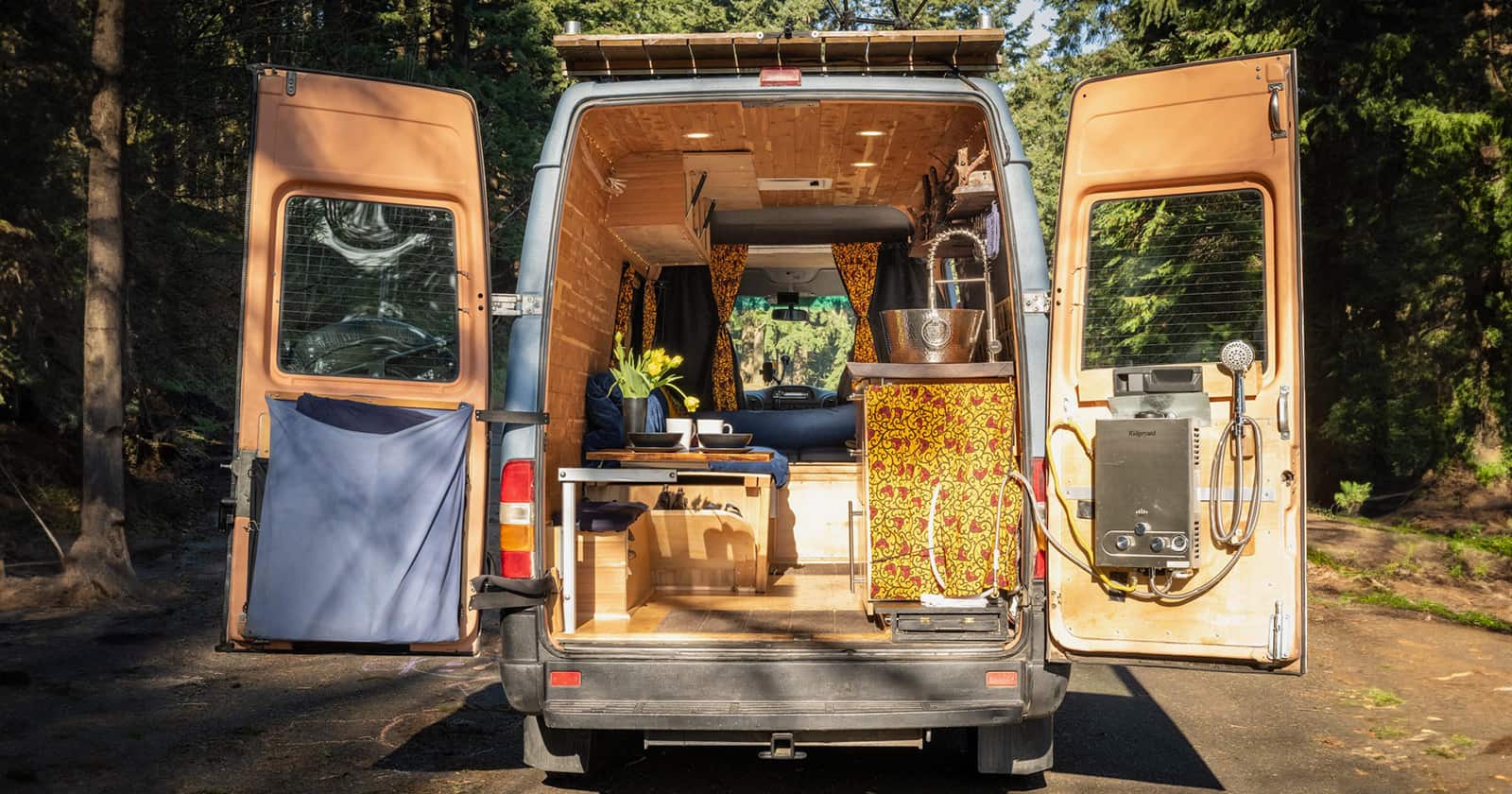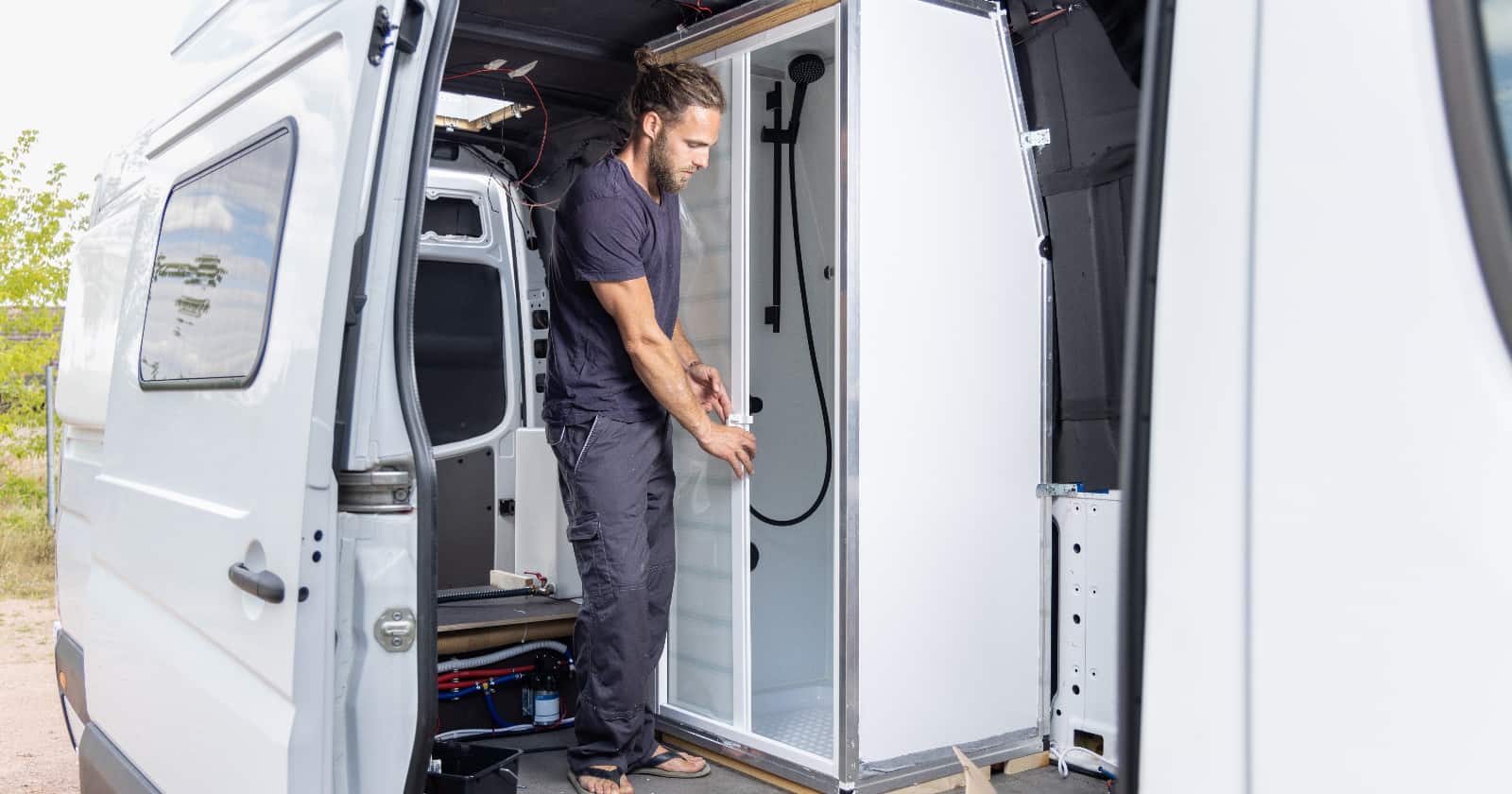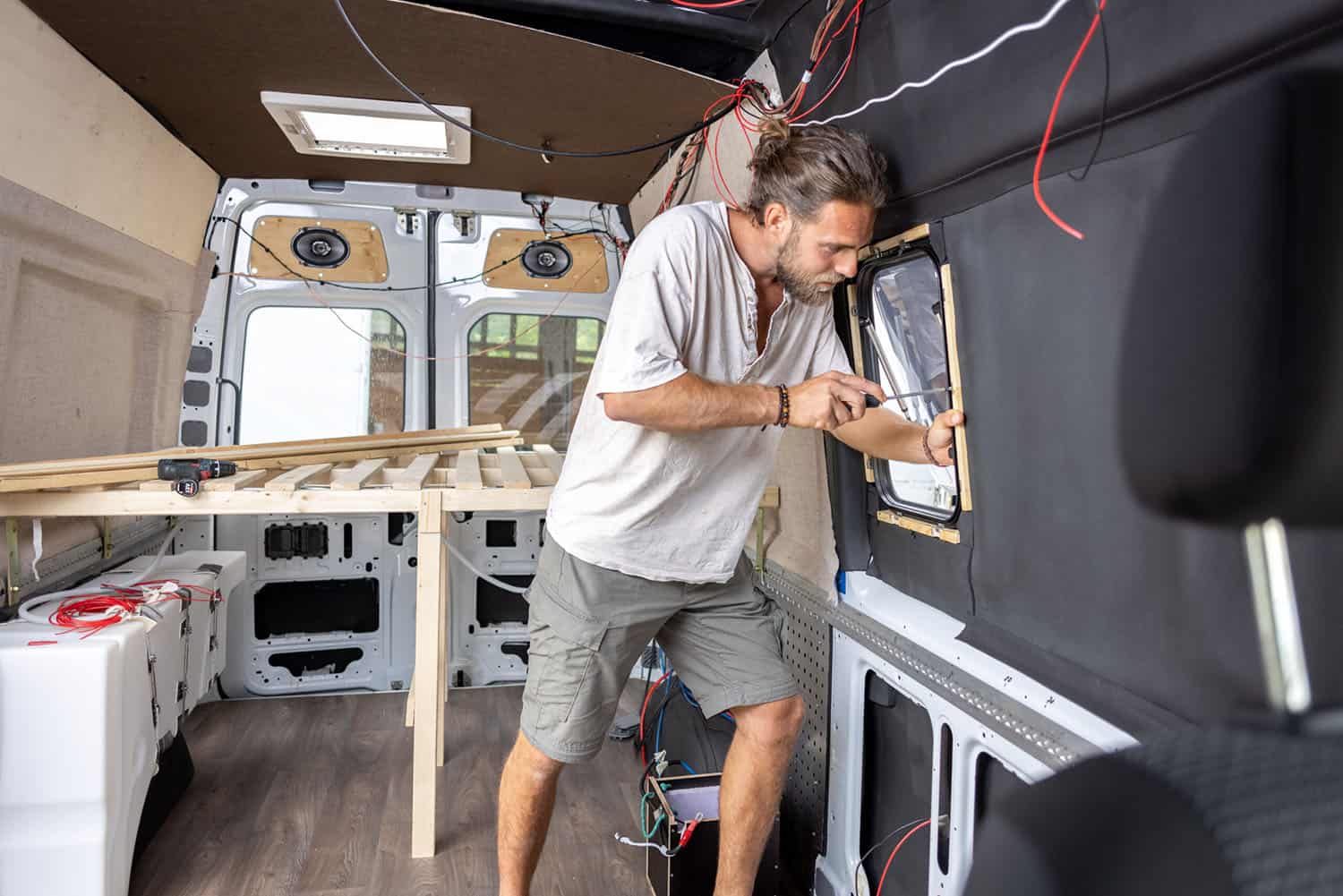When living in your van, either full time or just while on adventures, many of your simple daily tasks can contribute to moisture in your van. Cooking, showering, heating, and even breathing all introduce moisture into the van, which under the right conditions, can turn into condensation.
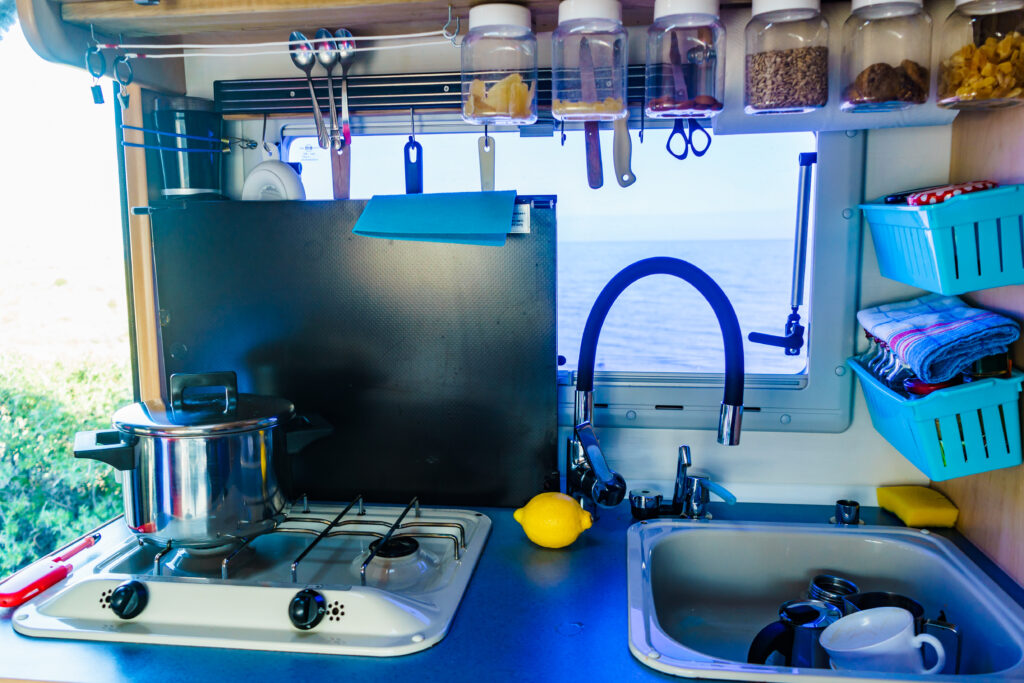
You might think that condensation in a van is just a minor annoyance that you can deal with when it comes up. However, van condensation can cause significant issues in your build. Unchecked moisture can cause:
- Rot
- Rust
- Mold (which is bad for your health)
It’s important to stop condensation head-on so that you can save your van from water damage. By understanding the causes and effects, you can attempt to prevent condensation. This prevention starts with your build and continues into day-to-day van life.
The Causes of Condensation in a Van
Without getting too scientific, it’s essential to have a basic understanding of what causes condensation in order to help you prevent it.
All air has some moisture in it and the amount of water vapor it can hold, or relative humidity, depends on its temperature. Warm air has higher relative humidity than cold air does. So, water droplets can form inside your van when warm, moist air meets a cold, smooth surface. Unfortunately for us, there are many surfaces primed to produce camper van condensation, like windows, walls, and the roof.
Typically, the biggest issues with condensation inside a van will arise when it’s cold outside and you’re attempting to stay warm. That being said, anytime the air is warmer inside the van than outside, or you introduce an abundance of vapor into your living quarters, you run the risk of creating moisture.
Estimate of added moisture by van lifers (scientific)
It’s pretty much impossible to avoid introducing more moisture in the van. The folks over at Far Out Ride came up with an estimate of added moisture for van lifers. They used data from a study on “The Effect of Indoor Humidity on Water Vapor Release in Homes.”
They concluded that about 1-3 liters of water can be added to the air each day!
Is Condensation Really a Big Deal?
You may be thinking “Can’t I just wipe up the water when I see it?”
The problem is, water can accumulate where you can’t see or reach. Plus, having wet towels drying in your van will recirculate the moisture.
Excess moisture in your van can cause structural damage as well as destroy your personal items or cause health issues. If you use untreated wood in your build and it gets wet, it will likely begin to rot or even grow mold! Certain insulation materials can also get wet, and since you probably can’t see them, mold can form without your knowledge.
Perhaps the biggest issue with any condensation in your van is the risk of rust. Rust can basically eat away the metal frame of your van. If left untreated, rust can make your van completely uninhabitable.
Water vapor is unavoidable, but you can help minimize its harmful effects by planning ahead while designing your van.
How to Prevent Condensation During Your Van Build
The most critical steps for preventing or minimizing condensation in your van are much easier to do during the build. While some alterations could be made to vans that are already built, it’s best to implement these things during the initial build.
Ever heard the saying “An ounce of prevention is worth a pound of cure”? Well, that applies here…
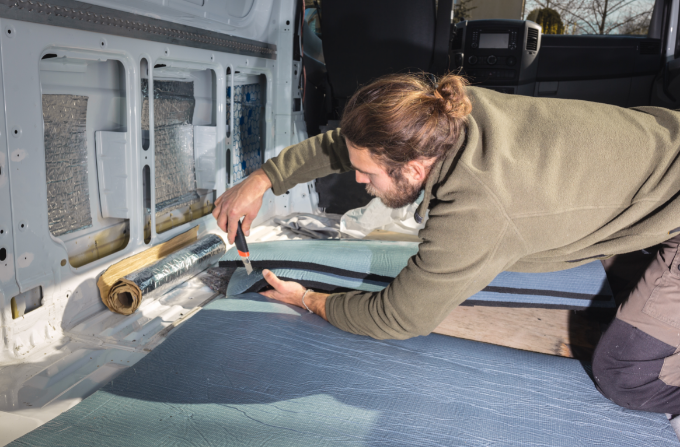
Vapor Barrier or Sound Deadening Material
To minimize the surfaces that may cause condensation, you can add vapor barrier or sound deadening material. Vapor barriers are designed to help prevent moisture on the walls of your van.
According to The Wanderful, vapor barriers must be installed perfectly to function properly, which can be challenging to do in vans. Instead of tricky vapor barrier, they recommend LizardSkin, a textured sound deadening material. LizardSkin is easier to install and the rough surface makes it less likely to form condensation. Ideally, you’ll want to cover all exposed metal on the inside of your van.
Good Ventilation
Maintaining good ventilation is also crucial in the war on water vapor. Pulling the moist air out of your van and replacing it with fresh air from outside while keeping good airflow is one of the best tactics for preventing moisture inside the van.
Installing a good-quality van roof fan is a great way to pull moist air out of your van. With a ventilation fan in exhaust mode, you will also need air intake, like a cracked window or another fan that can draw air inward.
Heaters
The type of heater you use in your van will also affect the amount of condensation created. Propane heaters are easy to install and do a great job of heating the space, but they produce a ton of moisture.
The best option for a van is an externally vented heater. These heaters were designed to burn out the moisture before bringing the air into the van, preventing extra water vapor.
Proper Insulation
Lastly, proper insulation installation during your van build can be a major life-saver. The key point with insulation is getting it flush with the van’s metal surfaces. This can be tricky as there are lots of nooks and crannies in the outside walls.
There are many types of insulation to choose from. The van community is divided on which options are best, so you’ll have to do some research to figure out which insulation is ideal for your specific situation and van.
Dealing With Inevitable Condensation
Once you’ve done everything you can to minimize condensation during your van build, there are steps you can take while living or traveling in your van to help keep moisture at a minimum as well.
Cook Outside
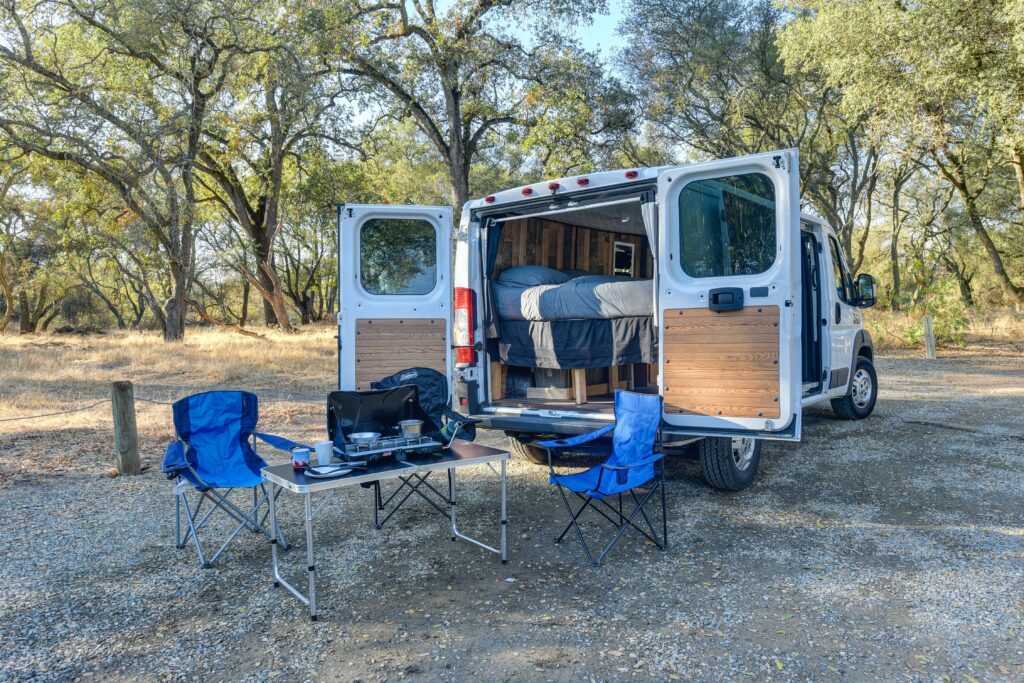
When possible, consider cooking outside to prevent increased humidity inside. If that’s not an option, leave a window or door open to allow plenty of air flow. if the temperatures are not friendly, consider a battery-operated fan to keep the air circulating. In fact, continuous air flow is the best defense against all sources of condensation in a van.
Minimize Moisture Producing Activities
You’ll also want to avoid any other activities that increase humidity in the van such as:
- Showering in the van
- Drying wet clothes
- Using propane heaters
Avoiding the conditions that produce water vapor will obviously help as well, so skipping cold weather locations can make a huge difference.
Window Covers
Considering that windows are one of the most common places we see condensation, window covers may help a bit. For them to function the best, they need to fit perfectly and not allow air between the cover and the window. If there is a gap, condensation will still be able to form.
Van Dehumidifier
Dehumidifiers work by drawing in the warm air and collecting the moisture in a removable tank.
So, using a van dehumidifier could help stop condensation as well. These dehumidifiers can be especially helpful when outside conditions prevent you from creating adequate air flow or you’re in a super humid location.
On top of everything else, keep your eyes out for leaks or moisture that is accumulating. Any issues that arise should be dealt with as soon as possible to prevent long-term damage.
Condensation in your van is extremely difficult to eliminate completely, but by preparing ahead of time during your camper van build and being conscious of your habits, you can do your best to minimize moisture and the negative effects it can have on your little home on wheels.

